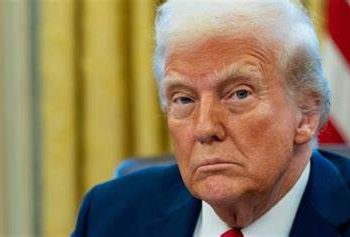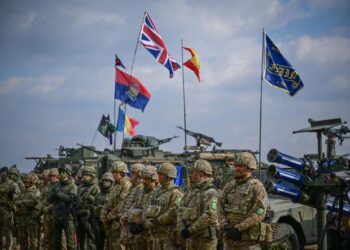The European Union has finalized its 18th sanctions package targeting Russia’s war effort in Ukraine, implementing some of the bloc’s most stringent measures yet against Moscow’s energy sector and financial institutions.
The comprehensive package, agreed upon by EU member states, includes a significant reduction in the G7 price cap for Russian crude oil from its current level to $47.6 per barrel, according to diplomatic sources who spoke to Reuters. This represents a direct strike at one of Russia’s primary revenue sources funding its military operations.
EU foreign policy chief Kaja Kallas announced the agreement on social media, describing it as “one of the strongest sanctions packages against Russia to date.” She emphasized the bloc’s commitment to continuously escalating economic pressure on Moscow, stating that “stopping the aggression becomes the only path forward for Russia.”
The sanctions package introduces a complete ban on transactions involving Russia’s Nord Stream gas pipeline infrastructure, effectively preventing any potential restoration of the defunct Baltic Sea pipelines Nord Stream 1 and 2. This move ensures that these strategic energy conduits cannot be revived to benefit Russian interests.
European Commission President Ursula von der Leyen welcomed the agreement, highlighting its comprehensive scope. “We are striking at the heart of Russia’s war machine, targeting its banking, energy, and military-industrial sectors and including a new dynamic oil price cap,” she wrote on social media platform X.
In a significant expansion of maritime restrictions, the EU is adding over 100 additional vessels to its blacklist of Russia’s “shadow fleet” – aging tankers that Moscow uses to circumvent existing oil export limitations. These vessels have been crucial to Russia’s efforts to maintain oil revenues despite international sanctions.
The package extends beyond Russia’s borders, targeting international enablers of Moscow’s war effort. Sanctions will be imposed on a Russian-owned oil refinery operating in India and two Chinese banks, signaling the EU’s determination to disrupt Russia’s partnerships with third-party nations that facilitate sanctions evasion.
Additional measures include expanded transaction bans affecting Russian banks and tighter restrictions on the export of dual-use goods – items that have both civilian and military applications and could potentially be used in Ukraine’s battlefields.
The sanctions package is expected to receive formal adoption by EU ministers later on Friday, marking another escalation in the economic warfare between the West and Russia since the invasion of Ukraine began in February 2022. This latest round brings the total number of EU sanctions packages against Russia to 18, demonstrating the bloc’s sustained commitment to maintaining pressure on Moscow’s war machine.


















